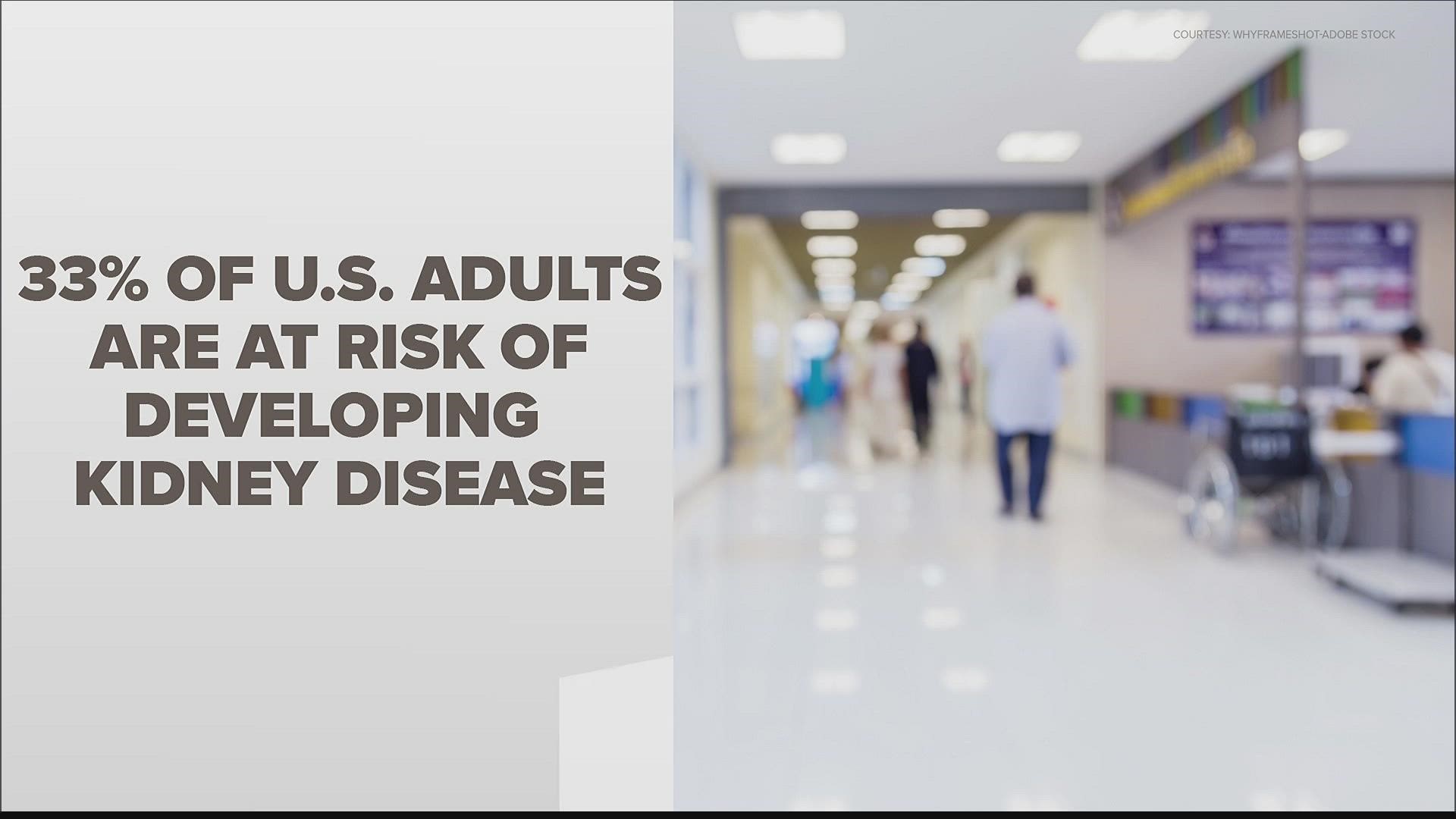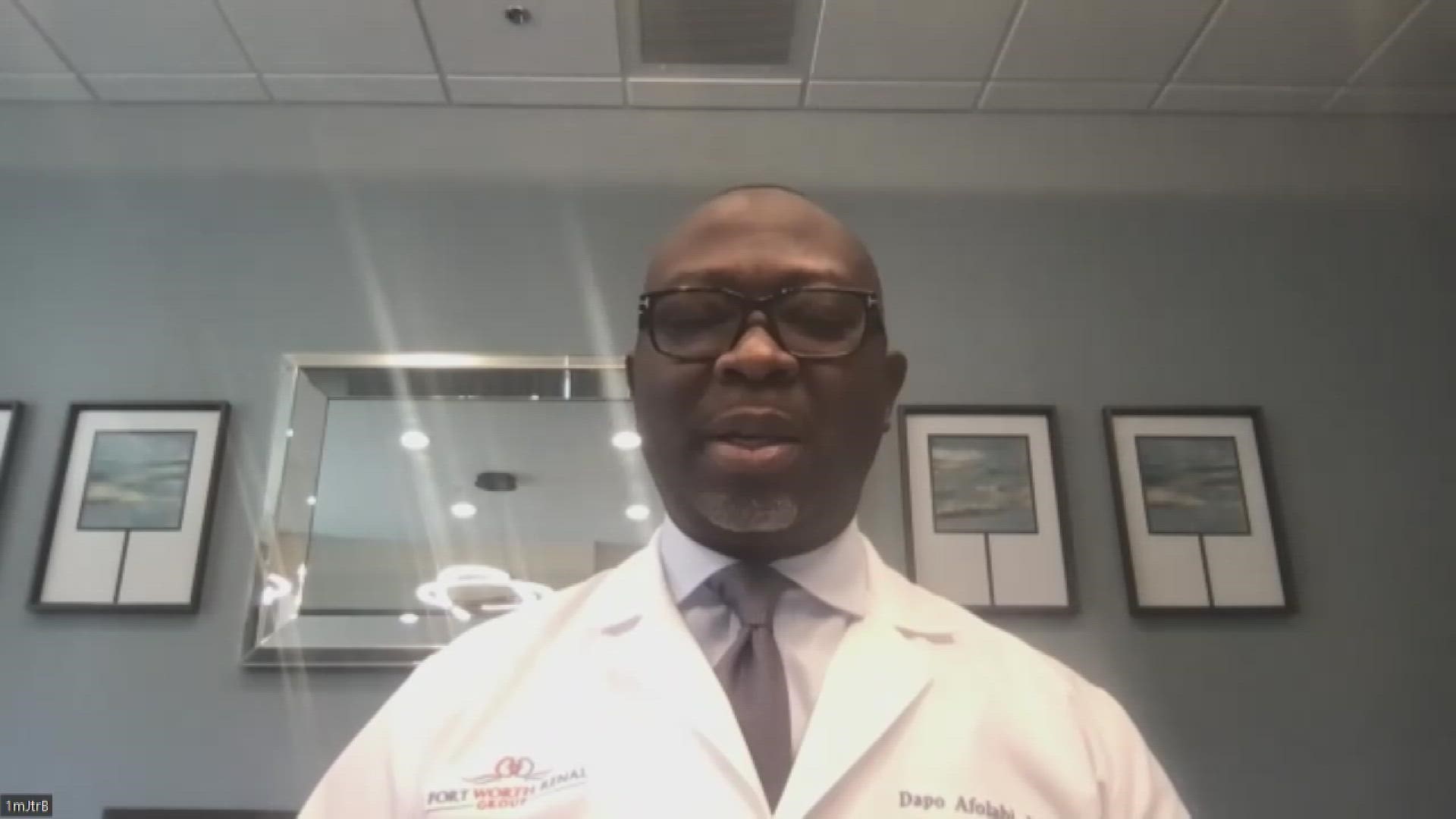ATLANTA — Most people don't give much thought to their kidneys. According to the Centers for Disease Control and Prevention, nine out of 10 people with Chronic Kidney Disease (CKD) don't know they have it.
"Kidney disease is one of those things that's considered like high blood pressure, one of those silent killers," said Dr. Oladapo Afolabi, a Nephrologist at Fort Worth Renal Group. "Up to two out of five of our patients don't even realize they have kidney disease."
CKD, also called chronic kidney failure, occurs when there is a gradual loss of kidney function.
Dr. Afolabi explains that your kidneys filter wastes and excess fluids from your blood. Loss of kidney function causes excess fluid and waste to remain in the body and can cause other health issues, such as heart disease and stroke, information from the CDC shows.
Kidney disease often goes undiagnosed due to the slow progression of symptoms over a long period, said Dr. Afolabi. If not treated, CKD can progress to kidney failure, according to research cited in The Mayo Clinic. Once kidney failure is reached, two treatment options exist.
"The only way to take care of kidney disease at that time is either dialysis or get a kidney transplantation," added Dr. Afolobi.
Minority populations are more likely to develop kidney failure, he adds.
"When you extrapolate the numbers and you see the population with kidney disease as prevalent, it's really in the minority population."
The National Kidney Foundation reports that Black Americans are three times more likely than White Americans to develop kidney failure, and Hispanics/Latinos are 1.3 times more likely to have kidney failure than White Americans.
Kidney Care in Georgia
According to an America's Health Rankings (AHR) report, Georgia ranks 38 out of the 50 states for populations with the most CKD.
The ranking represents the percentage of adults who reported being told by a health professional that they have kidney disease (excluding kidney stones, bladder infection or incontinence), AHR reports.
Patricia Calhoun, a Patient Health Advocate for value-based care company Somatus is responsible for providing wrap-around care to patients with CKD in Georgia.
"My job is simply to be involved with the patients, touch base with the patients, find out what their needs are and communicate closely with their registered nurse," said Calhoun.
Calhoun works alongside Dr. William Cleveland, the first African American nephrologist in Georgia, to help fill the gaps in care and help his patients between visits.
"We have the opportunity to meet the patient where they're at in their own environment and oftentimes you can discover and find out things that wouldn't necessarily be discovered or talked about in an office visit setting," added Calhoun.
Calhoun and her care team can visit patients at their homes and provide care to help keep them healthy.
"Our main goal and objective is to keep them from going to the hospital or being readmitted. The way we do that is making sure that all of their needs are met."
Kidney Prevention
The CDC recommends the following tips to keep your kidneys healthy.
- Keep your blood pressure below 140/90 mm Hg (or the target your doctor establishes for you)
- If you have diabetes, stay in your target blood sugar range as much as possible
- Getting active; physical activity helps control blood pressure and blood sugar levels
- Maintain a healthy weight
- Get tested for CKD regularly if you’re at risk
- Take medications as instructed
- Quit smoking
- Include a kidney doctor (nephrologist) on your health care plan


